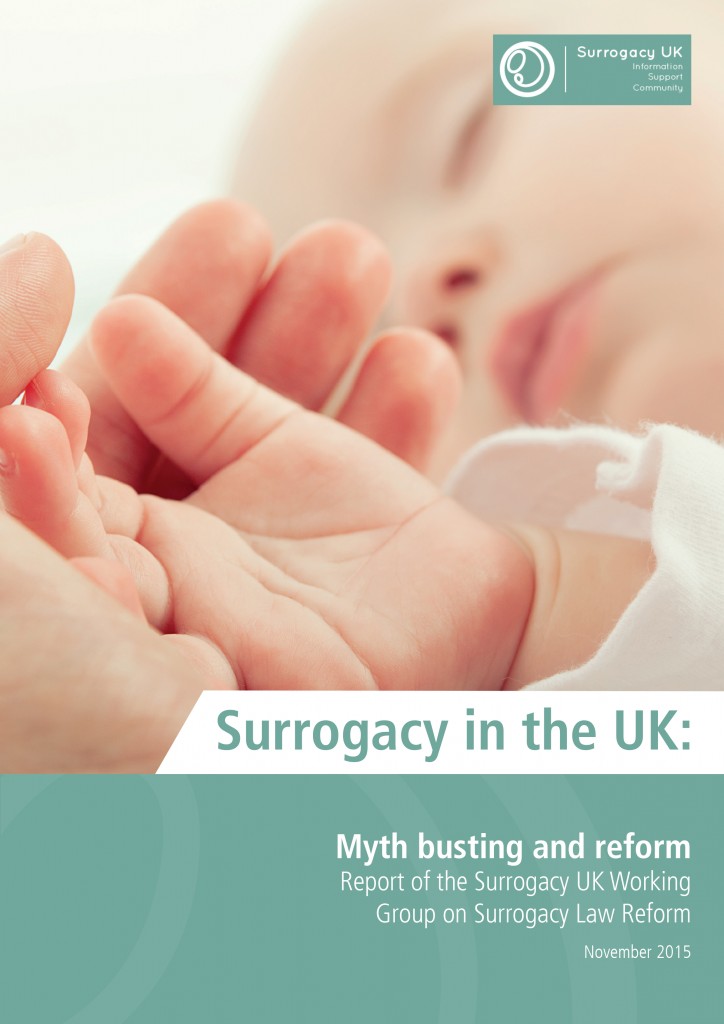A report by Kent Law School Senior Lecturer Dr Kirsty Horsey has discovered it is a myth that a high proportion of potential parents from the UK go overseas if they need to use surrogacy.
Written in conjunction with Surrogacy UK and other organisations, this is the first report of its kind and provides an unprecedented insight into how surrogacy is practised in the UK, dispelling a number of pervasive myths that have informed recent debate on the issue.
In her report, ‘Surrogacy in the UK: Myth busting and reform‘, which also calls for the reform of surrogacy laws, Dr Horsey disproves the misconception that UK citizens are most likely to go abroad to find a surrogate. Although she says the numbers are difficult to interpret – as various official agencies record things in different ways – there is clear evidence that the vast majority of British people wishing to pursue surrogacy do so in the UK, not abroad.
She also found that UK surrogacy is altruistic, in that it firmly rejects commercialisation. There was overwhelming support for legal reform in order, primarily, to ensure the welfare and interests of surrogate-born children, remove uncertainty over parenthood and broaden access to surrogacy.
Under UK law, surrogates are the legal mother of any child they carry, even if they are not genetically related, unless a parental order is granted by a court after they give birth, which transfers their rights to the intended parents. Highlighted by the report is the overwhelming support (75% of survey respondents) for legal reform in order to better represent how this works in practice. Both surrogates and intended parents want to remove the legal uncertainty over parenthood at the point of birth.
Furthermore, the report finds that 69% of surrogates are opposed to being able to change their mind about giving a baby back to its intended parents. Only 5% believe that a surrogate should be able to change her mind at any point.
Dr Horsey produced the report as part of a Working Group on Surrogacy Law Reform with Surrogacy UK and The Progress Educational Trust (PET), and practising surrogacy lawyer, Louisa Ghevaert.
Dr Horsey’s research interests are primarily in the field of the regulation of human reproduction and genetic technologies, particularly where this overlaps with issues in Family Law. As well as teaching undergraduate students, she has published widely on issues relating to the regulation of human reproduction.
Dr Horsey’s most recent edited collection Revisiting the Regulation of Human Fertilisation and Embryology was published in July by Routledge. The book critically examines the latest developments in human fertilisation legislation and brings together a range of international experts, evaluating the fresh risks and challenges emerging from both established and existing technologies and techniques in the field of human fertilisation and embryology.
Earlier this year Dr Horsey co-authored a book chapter entitled ‘The Fertility Treatment Time Forgot: What Should be Done About Surrogacy in the UK?’ with Katia Neofytou, in Revisiting the Regulation of Human Fertilisation and Embryology, published by Routledge. In March, Dr Horsey was invited to give a lecture on ‘Ethical responsibilities in surrogacy’ at the Families Thru Surrogacy international consumer conference in London and in January, she successfully secured funding to investigate surrogacy law in practice. The grant enabled the implementation of a socio-legal pilot project researching lived experiences of surrogacy law.
In addition to her involvement with the Centre for Interdisciplinary Studies of Reproduction (CiSoR), a research centre based at the University of Kent, Dr Horsey is a member of the advisory committee for PET, a charity that works to inform debate on assisted conception and genetics. She is also a Contributing Editor for BioNews, a free news and comment digest published by PET.

